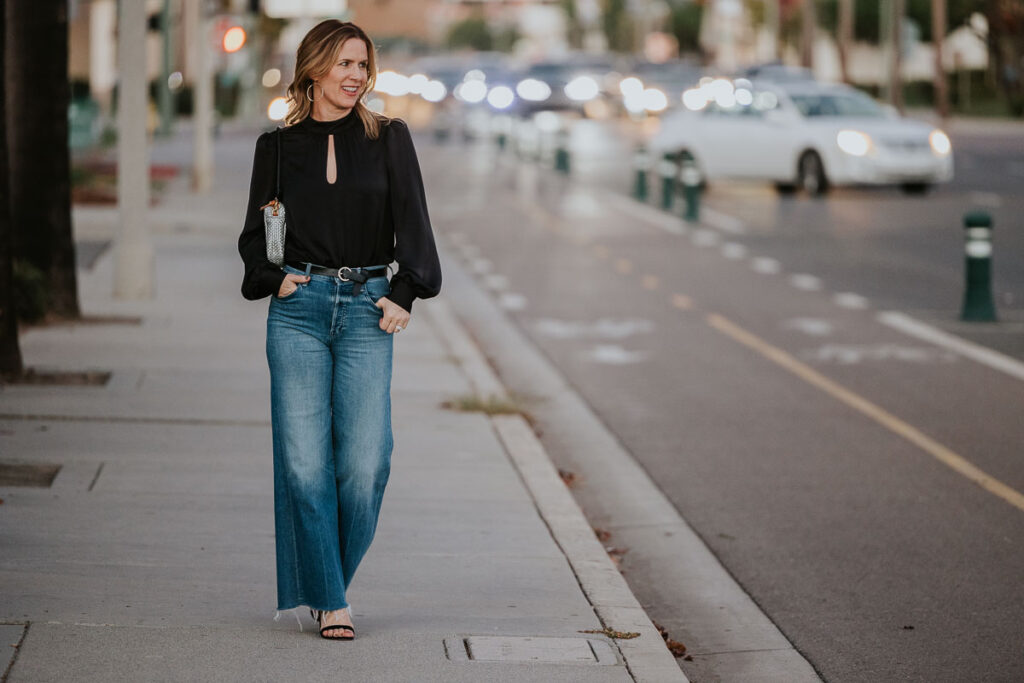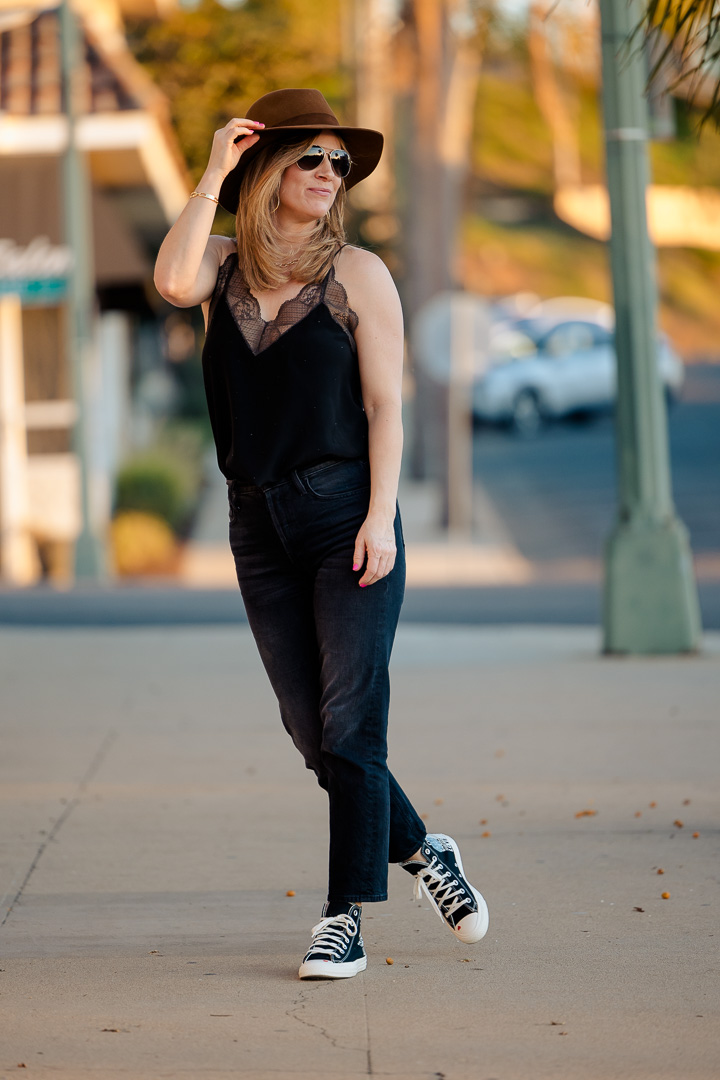If you have ever asked “Why do I have anxiety all the time?” you probably have Generalized Anxiety Disorder. This is my story and how I keep it under control.

Last year I wrote the article How Lexapro Changed My Life and I got more responses on that article than all others combined.
I’ve even had people coming up to me at various events saying they had read the article and that it really helped them feel better about their own anxiety. And I get quite a few emails about people who decided to try medication themselves thanks to that article.
This has been the most rewarding thing I’ve ever experienced since I started this blog. To know that I’ve contributed to someone else’s mental well being is more than I could ever ask for!
I have gotten quite a few questions and I thought I’d answer some of them here. People have been so appreciative of my candor discussing this subject. I truly believe if we start discussing anxiety openly, more people will feel comfortable in seeking help.
How did my anxiety make me feel?

I’ve had varying levels of anxiety over the years.
Level 1 was the every day anxiety that made me just constantly feel anxious about stuff that no one should feel nervous about. Like making a phone call to someone. Or introducing myself to a small group of people. It was just an overall sense of discomfort. Wishing I didn’t have to. Putting certain things off. Saying no to other things to avoid certain situations. I can describe it as the kind of unease you might get when watching a scary movie and waiting for something to happen, except it’s most of the time.
Level 2 was bigger but short-lived scenarios like interviews, speaking in class, presentations to co-workers. That was heart-pounding, sometimes so hard I could hear it in my ears, feeling hot and flushed (can’t cool down), hands-shaking, voice-cracking kind of awfulness.
Level 3 was the biggest situations that could give me full blown panic attacks. Worrying about something happening with my children (getting bullied, health issues, etc.), worrying about where we were moving (20 year Marine husband), and general BIG issues in life. That’s where I couldn’t focus on anything else. My brain constantly imagined worst case scenarios – actually making something huge out of nothing.
I would have trouble breathing at times when I got too worked up. I would lose motivation to do almost anything. It was a sense of overwhelming dread and fear.
In every scenario above, my brain would blow it all out of proportion. I wouldn’t be rational and couldn’t even consider that maybe it wasn’t as bad as I was making it out to be. In other words, it was hell!
Why is it hard for people who don’t have anxiety to understand what I’m going through?

I finally understand this one. Growing up, we didn’t talk about anxiety. I don’t ever recall even using that word with anyone. It wasn’t until I was in my early 20s and saw a therapist that I was able to put a label to it.
When I got married, my husband would often tell me “relax”, “calm down”, or “just stop worrying”. I would get so frustrated. Like why didn’t I think about just calming down? (Hint: don’t ever tell anyone to calm down, ha!) He used to say that everyone gets anxiety. But no, everyone does not have this kind of anxiety. My Psychiatrist was the first one to diagnose me with GAD – Generalized Anxiety Disorder, six years ago.
It’s normal to feel anxious from time to time, especially if your life is stressful. However, excessive, ongoing anxiety and worry that are difficult to control and interfere with day-to-day activities may be a sign of generalized anxiety disorder.
I think it’s nearly impossible to understand true anxiety unless you’ve been there. Read more about GAD here.
It wasn’t until I had been on Lexapro for a few months that I finally understood just why he didn’t get it. Once I had my anxiety under control and realized most people didn’t live with GAD, it would be almost impossible to believe that someone was going through all of that, all of the time. Because it’s that bad and unless you’ve lived it, you just can’t even comprehend it.
As much as anxiety sucks (and it really does suck), I’m thankful I can relate and offer empathy to those who have it, including my own children.
Why does it seem less acceptable for men to have anxiety?
This is super sad for me. And it’s a real thing.
Anxiety disorders are the most prevalent mental health disorder experienced by men. If left untreated, anxiety is predictive of psychiatric disorders including depression and associated suicide risk.
This is just my opinion, but I think we mostly have a culture that doesn’t accept men being vulnerable, depressed, or anxious. And also men don’t tend to talk socially the same way women do. I talk about anxiety to almost every woman I know! We support each other and relate to each other’s sufferings. It’s not the same with men.
This article, Men’s Anxiety, Why it Matters, and What is Needed to Limit its Risk for Male Suicide, in the National Library of Medicine, sheds more light on this important and troubling subject.
This article Does Anxiety Mean We Are Weak Minded? by anxietycentre.com, speaks volumes. And it also illuminates why shame is often associated with anxiety and why we are so often loathe to admit it.
There is research to support the idea that people who struggle with anxiety issues are generally highly intelligent with above average IQs.
We need to start recognizing GAD as a real health concern that needs care and treatment.
What did anxiety stop me from doing?

This is a tricky question to answer because I’m sure there are thousands of things over the years that I avoided doing. So much so that I can’t even comprehend how my life would be different without anxiety.
At the same time, I am very fortunate with the life I have and therefore it’s hard for me to wish for anything different.
I wouldn’t have started this blog without medication. I didn’t even like seeing myself in pictures! It gives me a creative outlet that I’d been missing.
I think the key point is to focus on life going forward! Once I got rid of my anxiety (mostly) life was just so much brighter!
Should I try medication?

I have gotten more questions about medication than any other. And one of the biggest questions I get are from people wondering if they should try medication. Here are my simple thoughts.
If you are asking the question, then yes, you should talk to your doctor about it. There are a few important things to take into consideration.
1. There are various medications to try. Your doctor will discuss what they think to be the best starting point.
2. It takes about 3-4 weeks for medications to take full effect. Sometimes longer if you need to change the dose or type.
3. If it’s not working for you, you can wean yourself back off. At least you will know and you won’t have to wonder.
After many years of refusing to take any medication, I realize I was being so foolish. And if you need further proof, go back and read my first article How Lexapro Changed My Life. I’ll probably be on Lexapro for the rest of my life and I am fine with that. Because I know it’s a medication my body needs to function normally.
What else do I do for my mental well being?
This is actually a good question, because even on Lexapro, my mental health is so much better when I take better care of myself.
1. More water and less caffeine. This one is hard for me, because I LOVE coffee. For the longest time, I drank coffee with wild abandon and didn’t care about the side effects, but it was catching up with me so I mostly quit. Now I drink a combination of green and hibiscus tea in the morning, but I will still drink coffee once a week. I’m much less anxious and feel better overall.
2. Exercise. I don’t love exercise, but I’ve been forcing myself to just get up and go to the gym early every morning (having a gym buddy helps to motivate me). It starts my day off right and I feel a thousand times better. Once it’s a habit, it’s so much easier. And I feel great walking out of there.
3. Less alcohol. I’m a lightweight but I do love my margaritas and red wine. I try to keep it to once or twice a week and rarely have more than two. I found that overindulging gives me anxiety the next day.
4. Eight hours of sleep. This one is proving tricky as I navigate peri-menopause, but I take my Lexapro before bed and that helps a bit.
That’s all the questions I have so far, but please let me know if there’s anything more you want to know! And if you’ve come here because you searched for “Why do I have anxiety all the time?” I hope that I’ve helped in some small way.
x Tammy
Related Articles:
How Lexapro Changed My Life : Part 1
Lexapro Stopped Working : Part 2
Skin Cancer Anxiety
Why Am I So Hard On Myself?
Fears and Facts About Antidepressants
Lexapro – Uses, Side Effects, and More






